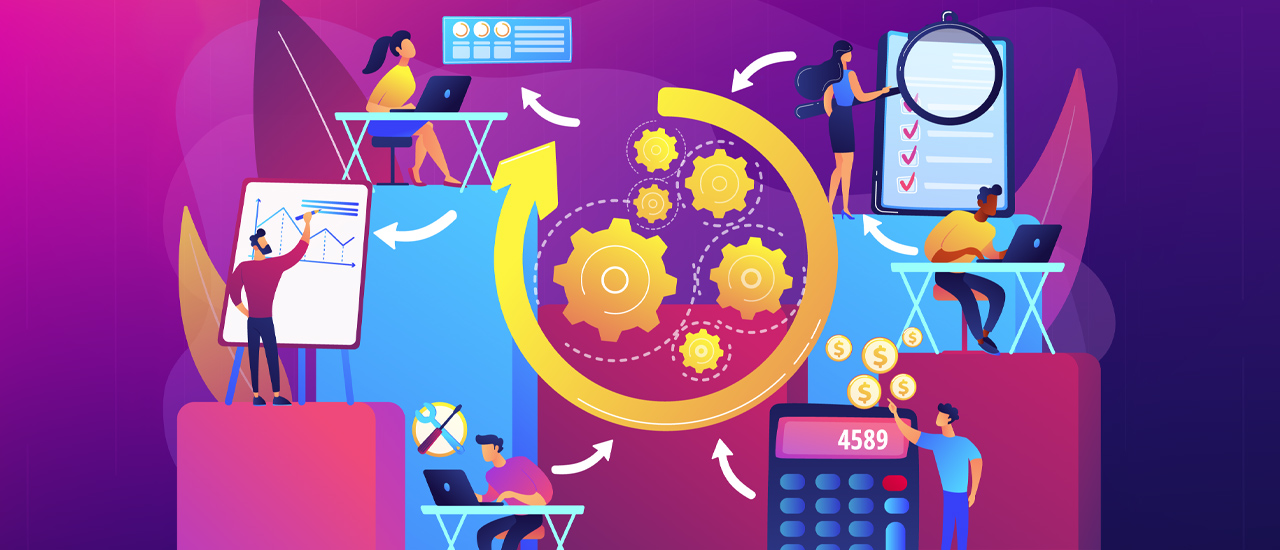Leaders need to look themselves in the eye and ask: Am I equipping people with the performance habits that will help them work remotely, work as a team, and pull us through 2020? says Brendon Burchard, bestselling author of High Performance Habits: How Extraordinary People Become That Way.
The key in today’s turbulent pandemic world is to move from a coping conversation to a performance conversation, says Burchard.
“Leaders are being naturally and importantly empathetic with teams during these uncertain times. But there is a difference between empathy with no edge for performance, and empathy with an edge for performance. We need to put the performance edge back into our individuals, our leaders, and our teams to survive 2020 and come out of this period strong enough to handle 2021.”
Burchard draws on the research he conducted for his book as a roadmap for charting a return to high performance. He says a great place to start is with the first three habits of clarity, energy, and necessity.
“Clarity means anchoring into intention right now so that you're not pulled into distraction. People have lost their time management skills because they’ve lost clarity.”
A case in point is the increasing amount of hours people spend looking at screens, says Burchard.
“People are consuming three to nine times more content these days – refreshing their news feed every 30 seconds. And it’s not just the news, not just social media, but Netflix, Hulu, Disney, etc. When we are uncomfortable, we seek entertainment to detach. That detachment is really detachment from clarity.”
“High performers seek clarity. That means they know their why. They live intentionally for the day. They know who they want to be in their self. They know how they want to treat other people. They know what skills they need to develop. They have clarity on the service they want to provide to the world. And that clarity helps them live more intentionally, more purposefully, each day. It also grants them greater levels of motivation and fulfillment because they know what they're after.”
The second habit for returning to performance, says Burchard, is energy.
“High performers generate energy, which means they manage their mental, emotional, physical, and spiritual energy well. They are aware of the importance of keeping their mind, body, and spirit rested and rejuvenated, as well as the importance of bringing positive emotion and energy to things.
“They're highly aware of their energy – not just the energy they feel, but also the energy they project into the world and how that energy influences their team.
“There is a high level of discouragement and a defeatist mentality right now about COVID. There is an entitled sense of "This is so unfair – and it's so unfair to me,” says Burchard. “As high performing leaders, we have to be able to say: "Yes, this is hard. Yes, this is brutal. But this is the challenge that's been teed up for me right now. Let me serve that challenge. Let me honor the struggle. Let me be a role model.”
That feeling builds necessity, Burchard’s third habit.
“High performers believe it's always necessary to be their best. It’s necessary to succeed. It's a must, not a preference. They're always reminding themselves of the importance of what they are doing, which raises the stakes on their identity, their performance, and how they're going to show up.”
Burchard says this mindset is much different from a reactive mindset where leaders don’t have clarity, are not attentive to their energy, and don't really care if they do a good job or not.
In addition to these three personal habits, high performers display three social habits – productivity, influence, and courage – that are also important for organizational or team success.
“High performers generate high productivity,” says Burchard. “They are aware of the outputs they are creating that either move the needle toward their outcomes or not. They don't waste a lot of time. They don't get lost or have a lot of distractions. They know the five moves it takes to get to where they want to go, and they're focusing on those things while the average and low performers are distracted.
“High performers also exercise influence. They are constantly aware of how they are guiding people and treating them. They create great relationships with others while still holding them accountable to high standards. They influence people’s growth and development by serving as a positive role model.
“The last social habit high performers practice is courage, and they do it in immeasurable ways. They are not afraid to share who they really are and what they think, feel, and desire. In a meeting, they are more likely to speak their mind than to hold back out of embarrassment or fear of being judged. They also speak up for others. Courage is about putting yourself out there, beyond your comfort zone, because you realize that's where life is.”
“The nice thing about habits is that they can serve whatever outcome, mission, performance KPI, or OKR a company has. But these six habits, specifically, will move teams and organizations toward their goals faster.”
Burchard encourages L&D leaders to take action quickly during this time of uncertainty.
“There are no high levels of performance without disciplined and focused habits. We must take back control of our efforts for 2020. In a time when there seems like there is no control, we need to find performance-improving factors we can face, influence, and push forward.”
About the author
David Witt is a Program Director for The Ken Blanchard Companies. He is an award-winning researcher and host of the companies’ monthly webinar series. David has also authored or coauthored articles in Fast Company, Human Resource Development Review, Chief Learning Officer and US Business Review. To learn more, visit kenblanchard.com.
Contents of this article remain the property of the author and/or publisher.
 Drive Results in Your Organization
Drive Results in Your Organization